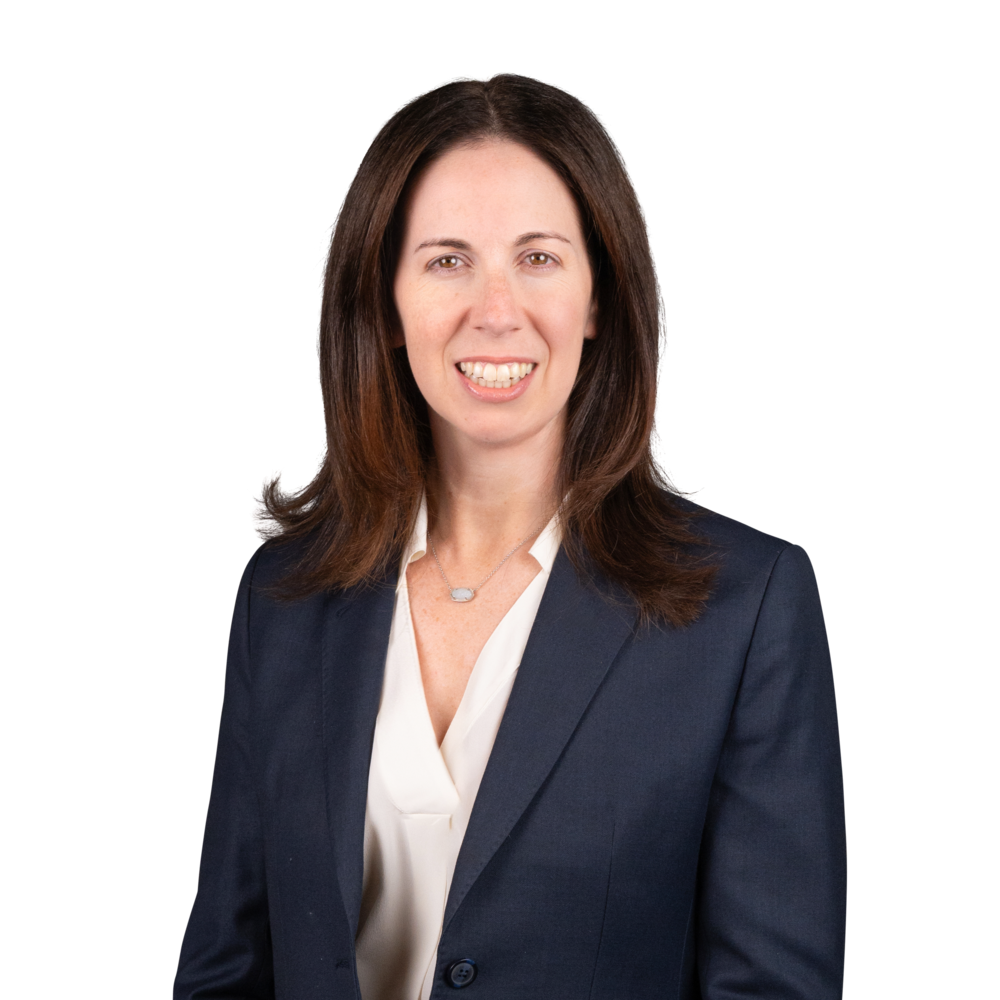
Investing in European Emerging Managers
- Published
- Nov 9, 2023
- Share
In this episode of Engaging Alternatives Spotlight, Elana Margulies-Snyderman, Director, Publications, EisnerAmper, speaks with James Roebuck, Managing Partner & Michelle Khong, Partner at Opera Investment Partners, a Zurich-based firm that invests in European emerging managers. They share the outlook for investing in European emerging managers, including the greatest opportunities and challenges, how the firm is integrating ESG and DEI and more.
Transcript
Elana Margulies-Snyderman:
Hello and welcome to the EisnerAmper podcast series. I'm your host, Elana Margulies-Snyderman. And with me today is James Roebuck, Managing Partner and Michelle Khong, partner at Opera Investment Partners, a Zurich-based firm that invests in European emerging managers. Today, James and Michelle will share with us the outlook for investing in European emerging managers, including the greatest opportunities, challenges, how the firm is integrating ESG, DEI and more. Hi James and Michelle. Thank you so much for being with me today.
Michelle Khong:
Hi, Alana. Thanks for having us.
James Roebuck:
Great to be here.
EMS:
Absolutely. So to kick off the conversation, tell us a little about the firm and how you got to where you are today?
MK:
Absolutely. So happy to kick us off. Opera is a specialist asset manager based in Zurich, Switzerland, as you've mentioned. We invest alongside emerging private equity managers, which includes both emerging funds and deal co-investments alongside independent sponsors. We are three founding partners and we set up the company in Q4 2020 after we had spun out of another niche funder fund where we had been investing for over 10 years.
With that transition, we were able to bring with us significant IP around origination, selection and portfolio management, and also some key investor relationships. So for example, that includes a prominent US foundation, which is our anchor LP here at Opera. Since then, we've raised and committed over a 100,000,000 Euros as part of our fund one program, which is a 2021 vintage. And more recently, we've had a first closing of our second fund in the second quarter of this year. And for fund two, we're really looking to pursue the same strategy but with higher targeted commitments of 200,000,000 Euros.
EMS:
Great journey. So given your outlook for investing in European emerging managers, love to hear your perspective for the space going forward?
JR:
Sure. It's a good place to start, Alana, and perhaps to set the stage a little, at Opera we focus exclusively on emerging managers within small cap private equity. So in Europe that's fund sizes of between 50,000,000 and 200,000,000, and median deal EVs of around 20,000,000. We're targeting this subsegment as it remains inefficient and underpenetrated compared to larger parts of the market. This then allows for these asymmetric type opportunities and the 4X gross potential, which is really what we're looking for at the company level.
In terms of the outlook from here, it looks increasingly positive, I must say, and is largely driven by what has been an overall increase in quality within the manager and company landscapes. So for example, at the company level, there are now a large number of highly attractive small cap software and tech enabled companies driven by these trends in digitization and automation. And of course, the recurring differentiated higher margin potential of these business models and more attractive valuations as well has created a significant opportunity. And so the outlook is very favorable.
That said, the last 12 months have not been easy, particularly for emerging managers raising blind pool capital, and we actually saw several instances of managers putting spin out plans, for example, on hold, opting for a deal-by-deal model as they waited for the fundraising cycle to improve. So a few managers had to be more patient, but this actually played nicely into our own model as around 25% to 30% of our fund is reserved for these deal co-investments.
EMS:
And more specifically, what are some of the greatest opportunities you see going forward and why?
MK:
Well, we certainly see a great opportunity here. First off, I guess in terms of geography, the UK, Germany, Netherlands and the Nordics constitute the largest markets for us, and we expect to continue to allocate around 90% of our capital in these regions. If we look to the company level side of things in small cap markets, we find that the most interesting opportunities are those that have a non-financial reason for the private equity partnership to be sought out in the first place.
To give some examples, many European conglomerates are looking to carve out non-core business units from their enterprises, and the certainty of closing is way more important than price maximization. Similarly, founder owners that want to continue growing their companies but require external support are seeking out the right strategic partners to work with far into the future. Such non-financial reasons also exist on buy and build transactions and also succession cases and we think that these drivers make for the most compelling opportunities because firstly, they put a downward pressure on valuations at entry. And when you combine this with small companies where the operational upside can be significant, as many of these companies have typically not been optimized for strategy or process in the past, this makes and creates the conditions for outperformance.
And if we then look at the manager level and the features there, we see a trend of newly forming managers that are mainly spin outs from established private equity firms that have raised larger funds and grown out of their traditional core opportunity sets. In contrast, we focus on small fund sizes where this has two distinct advantages of reducing deployment pressures and also increasing the focus on absolute return and carry, as opposed to management fees and growing AUM. So quite some benefits there in terms of small funds.
These managers also tend to bring with them operational expertise, which really speaks to the founder owners that they're looking to partner with well into the future. So we believe that it's a combination of these factors that really constitutes the sweet spot of our opportunity set. Partnering with proven and very hungry managers who are able to buy at discounted valuations and also able to apply themselves operationally to drive further alpha. And on top of that, many of these companies also benefit from the trends to digitization or automation that James had mentioned before.
JR:
Exactly, and just so in essence, there are multiple levels of value creation in the companies, supportive tailwind effects in the markets, and strong alignment with the managers that we back. And maybe one data point to share here, across our fund one investments, the average GP commit was 7%, so a lot higher than the 2% industry standard.
EMS:
On the other hand, Michelle and James, what are some of the greatest challenges you face looking ahead and why?
JR:
Yeah, so we find that generalist investors in our market face three main challenges. So firstly, ensuring access to all the relevant opportunities, making the right selection decisions at an individual level, and then creating the optimal portfolio mix. And at Opera, we dedicate significant resources to the origination side and our success creating special access for our LPs is in large part thanks to the network that we built across Europe, and that's been developed for the last 13 years.
In addition to these efforts though, we've also developed a robot algorithm that searches the internet for manager targets. Many targets in our particular domain have a very low profile, they're below the radar of traditional sourcing. And so we've essentially automated part of our origination to try to find everything that we can. Overall, around 75% of our pipeline is what we define as off market. So outside of traditional processes and overall, we're generating around 200 opportunities each year, which we feel gives us a real edge.
But in addition to the origination, risk management, of course is key and we have significant repeat to support our selection and monitor. The Opera EMA model or emerging manager assessment model helps evaluate a manager's institutional quality in a more scientific way. So it essentially tests the rigor of a manager's core process engines of value creation, so sourcing, selection, transacting and operations. And then alongside team, and we assess also the character of the founders, which is very important. We've refined this EMA model over many years, and in essence, it allows us to make explicit certain qualitative data points that are otherwise more subjective within a complex due diligence.
And just the last point I would make here is around the importance of optimizing portfolio construction, particularly in terms of investment duration. Opportunities such as deal co-investments, late primaries, early secondaries with shorter durations creates real flexibility in terms of delivering outperformance. So for us, it's crucial to really time workflows to ensure that we have the resources available when an opportunity enters our pipeline.
MK:
That's a great point, James, because actually, this creates real tangible value in terms of cashflow profile to our overall portfolio. And hence we're constantly reassessing our deployment forecasts, whilst at the same time balancing quite a lively and active pipeline as some of these deal co-investments that come through have quite a tight turnaround time. So it certainly makes for interesting times as we assess our deal flow.
EMS:
To shift gears a bit, James and Michelle, ESG, DEI have been top of mind for the investment industry and wanted to hear how both of you are addressing this both at firm wide and fund wide level?
MK:
Yes, absolutely. So in terms of ESG, we've been a member of the UNPRI since 2021, and since then, we've been working with their guidance on enhancing our general policy framework. And during the investment period of fund two, we intend to continue the work, and also thereafter. In terms of DEI, we're still a small firm, so our hiring process to date has focused mainly on equality of opportunity as opposed to equality of outcome. And what we mean by that is we do believe in ultimately appointing the best suited person for the job, but at the same time, we want to ensure a broad-based applicant pool such that the process itself from the start is equitable. That being said, we do believe in diverse teams here at Opera, and we're very happy to say that two out of the five core team members are women.
JR:
Just to quickly add. At Opera, we're very proud to have Michelle as a founding partner and a big shareholder in our business, and I think she sets a great example for other Asian women in private equity.
EMS:
Michelle and James, we've covered a lot of great ground today and wanted to see if either of you have any final thoughts you'd like to share with us?
JR:
Yeah, in terms of our plans for the future perhaps, our long-term plan is really to continue building our position as the leading emerging manager investor in Europe. We'll be raising funds of around 200,000,000 every couple of years. We just have a very strong conviction in this scope for growth in general within private equity. But as we say on our website, the emerging manager category is really where alignment, performance and motivation are at their peak. So for us, it's about really capturing and delivering the most persistent forms of alpha that we can find out there.
And I should say, as of Q2 this year, we're at 20% IRR across 52 underlying companies. So our performance is on track in terms of what our strategy can deliver. And then just thinking about us as a team, as a group of professionals, I think our goal is really to strive towards deeper knowledge and IP within our field. And by that I mean capturing and tracking key data, assessing performance drivers at the most granular level, incorporating lessons learned. All these actions help us to become better investors over time. And by staying both humble and reflective, we retain the best perspectives of our strategy.
And just as a final point, I would say we're embracing our passion for emerging managers in small cap markets. We're big investors in our own funds, so we're strongly aligned with our investors, but really, it's our energy, insights and hard work that will continue to make us great partners for both our LPs and managers alike.
EMS:
Well, James and Michelle, I wanted to thank you both so much for sharing your perspective with our listeners.
MK:
Thanks for having us, Alana.
JR:
Thanks a lot. Really enjoyed it.
EMS:
And thank you for listening to the EisnerAmper podcast series. Visit eisneramper.com for more information on this and a host of other topics, and join us for our next EisnerAmper podcast when we get down to business.
Transcribed by Rev.com
Also Available On
Engaging Alternatives Spotlight
What's on Your Mind?
Start a conversation with Elana
Receive the latest business insights, analysis, and perspectives from EisnerAmper professionals.


